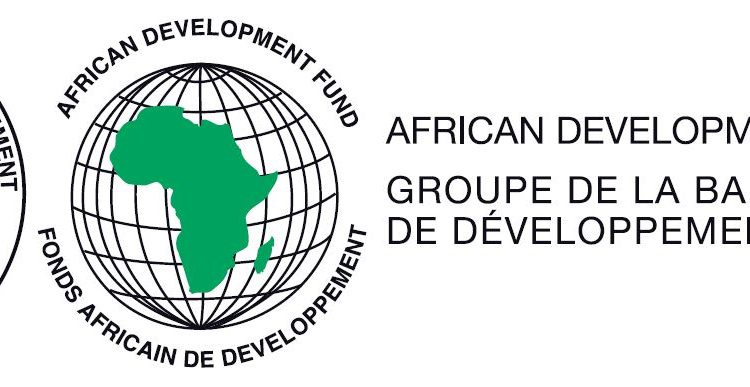Egypt: African Development Bank to provide $184.1 million for Africa’s largest solar energy and battery storage project
The Board of Directors of the African Development Bank Group (www.AfDB.org) has approved a financing package of up to $184.1 million to support the development of the Obelisk 1-gigawatt solar photovoltaic project and 200MWh battery energy storage system in Egypt, which will be Africa’s largest solar power plant.
Located in Qena Governorate in southern Egypt, the project entails the design, construction, operation, and maintenance of a photovoltaic power plant with an integrated battery energy storage system. The Egyptian Electricity Transmission Company will be the sole off-taker under a 25-year Power Purchase Agreement.
The project’s total cost is estimated at more than $590 million. The Bank Group’s financing package includes $125.5 million of ordinary resources, as well as concessional funding from Bank Group-managed Special Funds the Sustainable Energy Fund for Africa (SEFA) worth $20 million, and the Canada-African Development Bank Climate Fund ($18.6 million), a partnership of the Bank Group and the Government of Canada. A further $20 million will come from the Climate Investment Funds’ Clean Technology Fund, with additional financing to be mobilized from a consortium of development finance institutions.
Under Egypt’s Nexus of Water, Food, and Energy (NWFE) platform, Obelisk has been granted a Golden License by the government, which recognizes it as a strategic initiative that will contribute to addressing Egypt’s energy constraints and advancing its energy transition.
Dr. Rania Al-Mashat, Egypt’s Minister of Planning, Economic Development and International Cooperation, said “the Obelisk solar project is another important milestone for Egypt under the energy pillar of the NWFE program which has since its launch in November 2022 at COP27 in Sharm El Sheikh delivered 4.2 GW of privately financed renewable energy investments, worth about $4 billion, with the support of partners such as the Africa Development Bank. The goal of NWFE’s energy pillar is to add 10 GW of renewable energy capacity with investments of approximately $10 billion, and phase out 5 GW of fossil fuel power generation by 2030.”
The project, expected to be fully operational by the third quarter of 2026, will generate an estimated 2,772 gigawatt-hours of clean, reliable, and affordable energy annually to the national grid. The battery energy storage system will help meet peak evening demand with renewable power while also mitigating the variability of solar power generation. The project is expected to reduce annual carbon dioxide (CO2) emissions by approximately one million tons and create about 4,000 jobs during construction and 50 permanent jobs during operation, with a special focus on women and youth employment.
“Obelisk is another landmark development under NWFE that leverages on Egypt’s and the African Development Bank’s leadership as well as commitment to harnessing the country’s renewable energy to enhance the resilience of the country’s energy supply to meet its fast-growing energy demand sustainably,” said Kevin Kariuki, African Development Bank Vice President for Power, Energy, Climate, and Green Growth. “This project also contributes to Egypt’s ambition of producing 42 percent of its power generation capacity from renewable energy sources by 2030 while spurring economic growth and reducing greenhouse gas emissions,”
Ambassador of Canada to the Arab Republic of Egypt Ulric Shannon said: “Canada is proud to support solar energy development in Egypt. This initiative is a meaningful step toward enhancing energy security and stability, with direct benefits for the Egyptian people. We are pleased to collaborate with the African Development Bank and other partners in supporting Egypt’s transition to a sustainable, low-carbon economy.”
The Obelisk Solar Project aligns with the African Development Bank’s Ten-Year Strategy, its New Deal on Energy for Africa, and its Country Strategy Paper for Egypt as well as SEFA’s strategic framework which aims to accelerate African countries energy transition by increasing the share of renewables and catalyzing commercial capital mobilization in the power sector. The project also advances Egypt’s commitment to achieve 42 percent generation capacity from renewable energy sources by 2030.
“This project exploits the abundant renewable energy potential in Africa and demonstrates how strong partnerships and innovative solutions contribute to balancing three core objectives in the energy sector, namely energy security, affordability, and sustainable economic development,” said Wale Shonibare, Director of Energy Financial Solutions, Policy, and Regulation at the African Development Bank. “It has high potential for replicability across the continent.”
Distributed by APO Group on behalf of African Development Bank Group (AfDB).
Media Contact:
Olufemi Terry
Communication and External Relations Department
o.terry@afdb.org
Technical Contact:
James Otto
Senior Investment Officer
Energy Financial Solution and Policy Regulations Department
j.otto@afdb.org
About the African Development Bank Group:
The African Development Bank Group is Africa’s premier development finance institution. It comprises three distinct entities: the African Development Bank (AfDB), the African Development Fund (ADF) and the Nigeria Trust Fund (NTF). On the ground in 41 African countries with an external office in Japan, the Bank contributes to the economic development and the social progress of its 54 regional member states. For more information: www.AfDB.org


